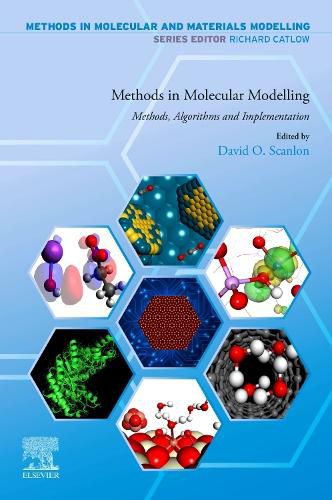Readings Newsletter
Become a Readings Member to make your shopping experience even easier.
Sign in or sign up for free!
You’re not far away from qualifying for FREE standard shipping within Australia
You’ve qualified for FREE standard shipping within Australia
The cart is loading…






Methods in Molecular Modelling: Methods, Algorithms and Implementation offers a brief and concise overview of methods available for materials modeling, enabling readers to identify the right level of theory for their calculations. The book explains each method, providing an understanding on which method and level of theory to apply to get trusted results for minimum computational costs. It serves as the foundational volume for a series that explores different application areas in detail. The theoretical foundations of methods for modeling molecules and materials are complex, and in addition to physics and chemistry, require a solid understanding of mathematics and programming.
Beginners in this area will appreciate helpful case studies and examples of applications in this book rather than the derivation of complicated equations. Through a balanced ratio of theoretical background of methods and practical application of these methods to representative problems from physics, chemistry, and materials science, this book teaches how to perform calculations that enable them to design new materials. More experienced researchers will also appreciate the practical applications described that can be used to prepare lectures.
$9.00 standard shipping within Australia
FREE standard shipping within Australia for orders over $100.00
Express & International shipping calculated at checkout
Methods in Molecular Modelling: Methods, Algorithms and Implementation offers a brief and concise overview of methods available for materials modeling, enabling readers to identify the right level of theory for their calculations. The book explains each method, providing an understanding on which method and level of theory to apply to get trusted results for minimum computational costs. It serves as the foundational volume for a series that explores different application areas in detail. The theoretical foundations of methods for modeling molecules and materials are complex, and in addition to physics and chemistry, require a solid understanding of mathematics and programming.
Beginners in this area will appreciate helpful case studies and examples of applications in this book rather than the derivation of complicated equations. Through a balanced ratio of theoretical background of methods and practical application of these methods to representative problems from physics, chemistry, and materials science, this book teaches how to perform calculations that enable them to design new materials. More experienced researchers will also appreciate the practical applications described that can be used to prepare lectures.